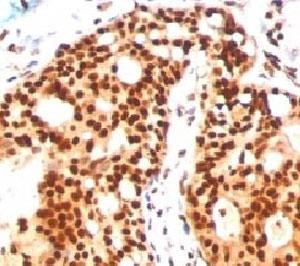Cookie preferences
This website uses cookies, which are necessary for the technical operation of the website and are always set. Other cookies, which increase the comfort when using this website, are used for direct advertising or to facilitate interaction with other websites and social networks, are only set with your consent.
Configuration
Technically required
These cookies are necessary for the basic functions of the shop.
"Allow all cookies" cookie
"Decline all cookies" cookie
CSRF token
Cookie preferences
Currency change
Customer-specific caching
FACT-Finder tracking
Individual prices
Selected shop
Session
Comfort functions
These cookies are used to make the shopping experience even more appealing, for example for the recognition of the visitor.
Note
Show the facebook fanpage in the right blod sidebar
Statistics & Tracking
Affiliate program
Conversion and usertracking via Google Tag Manager
Track device being used

| Item number | Size | Datasheet | Manual | SDS | Delivery time | Quantity | Price |
|---|---|---|---|---|---|---|---|
| NSJ-V2257-20UG | 20 µg | - | - |
3 - 10 business days* |
332.00€
|
||
| NSJ-V2257-100UG | 100 µg | - | - |
3 - 10 business days* |
752.00€
|
If you have any questions, please use our Contact Form.
You can also order by e-mail: info@biomol.com
Larger quantity required? Request bulk
You can also order by e-mail: info@biomol.com
Larger quantity required? Request bulk
0.2 mg/ml with 0.1 mg/ml BSA (US sourced), 0.05% sodium azide. This antibody reacts with both... more
Product information "Anti-SUMO2/3, clone SM23/496"
0.2 mg/ml with 0.1 mg/ml BSA (US sourced), 0.05% sodium azide. This antibody reacts with both SUMO2 and SUMO3. The small ubiquitin-related modifier (SUMO) proteins, which include SUMO1, 2 and 3, belong to the ubiquitin-like protein family. Like ubiquitin, the SUMO proteins are synthesized as precursors that undergo processing before conjugation to target proteins. Also, both utilize the E1, E2 and E3 cascade enzymes for conjugation. However, SUMO and ubiquitin differ with respect to targeting. Ubiquitination predominantly targets proteins for degradation, whereas sumoylation targets for a variety of cellular processing, including nuclear transport, transcriptional regulation, apoptosis and protein stability. The unconjugated SUMO1/2/3 proteins localize to the nuclear membrane, nuclear bodies and cytoplasm, respectively. SUMO1 utilizes Ubc9 for conjugation to several targets, which include MDM2, p53, PML and RanGap1. SUMO2 and 3 contribute to a greater percentage of protein modification than does SUMO1 and they can form polymeric chains. In addition, SUMO3 regulates beta-Amyloid generation and may be critical in the onset or progression of AlzheimerÆs disease. Protein function: Ubiquitin-like protein that can be covalently attached to proteins as a monomer or as a lysine-linked polymer. Covalent attachment via an isopeptide bond to its substrates requires prior activation by the E1 complex SAE1-SAE2 and linkage to the E2 enzyme UBE2I, and can be promoted by an E3 ligase such as PIAS1-4, RANBP2 or CBX4. This post-translational modification on lysine residues of proteins plays a crucial role in a number of cellular processes such as nuclear transport, DNA replication and repair, mitosis and signal transduction. Polymeric SUMO2 chains are also susceptible to polyubiquitination which functions as a signal for proteasomal degradation of modified proteins (PubMed:18408734, PubMed:18538659, PubMed:21965678, PubMed:9556629). Plays a role in the regulation of sumoylation status of SETX (PubMed:24105744). [The UniProt Consortium]
| Keywords: | Anti-Smt3B, Anti-HSMT3, Anti-SUMO-3, Anti-SUMO-2, Anti-Sentrin-2, Anti-SMT3 homolog 2, Anti-Ubiquitin-like protein SMT3B, Anti-Small ubiquitin-related modifier 2, SUMO2/3 Antibody |
| Supplier: | NSJ Bioreagents |
| Supplier-Nr: | V2257 |
Properties
| Application: | WB, FC, IHC, IF |
| Antibody Type: | Monoclonal |
| Clone: | SM23/496 |
| Conjugate: | No |
| Host: | Mouse |
| Species reactivity: | human (Expected: broad) |
| Immunogen: | Recombinant human SUMO2 protein was used as the immunogen for this SUMO2/3 antibody. |
| Format: | Purified |
Database Information
| KEGG ID : | K12160 | Matching products |
| UniProt ID : | P61956 | Matching products |
| Gene ID | GeneID 6613 | Matching products |
Handling & Safety
| Storage: | +4°C |
| Shipping: | +4°C (International: +4°C) |
Caution
Our products are for laboratory research use only: Not for administration to humans!
Our products are for laboratory research use only: Not for administration to humans!
Information about the product reference will follow.
more
You will get a certificate here
Viewed




